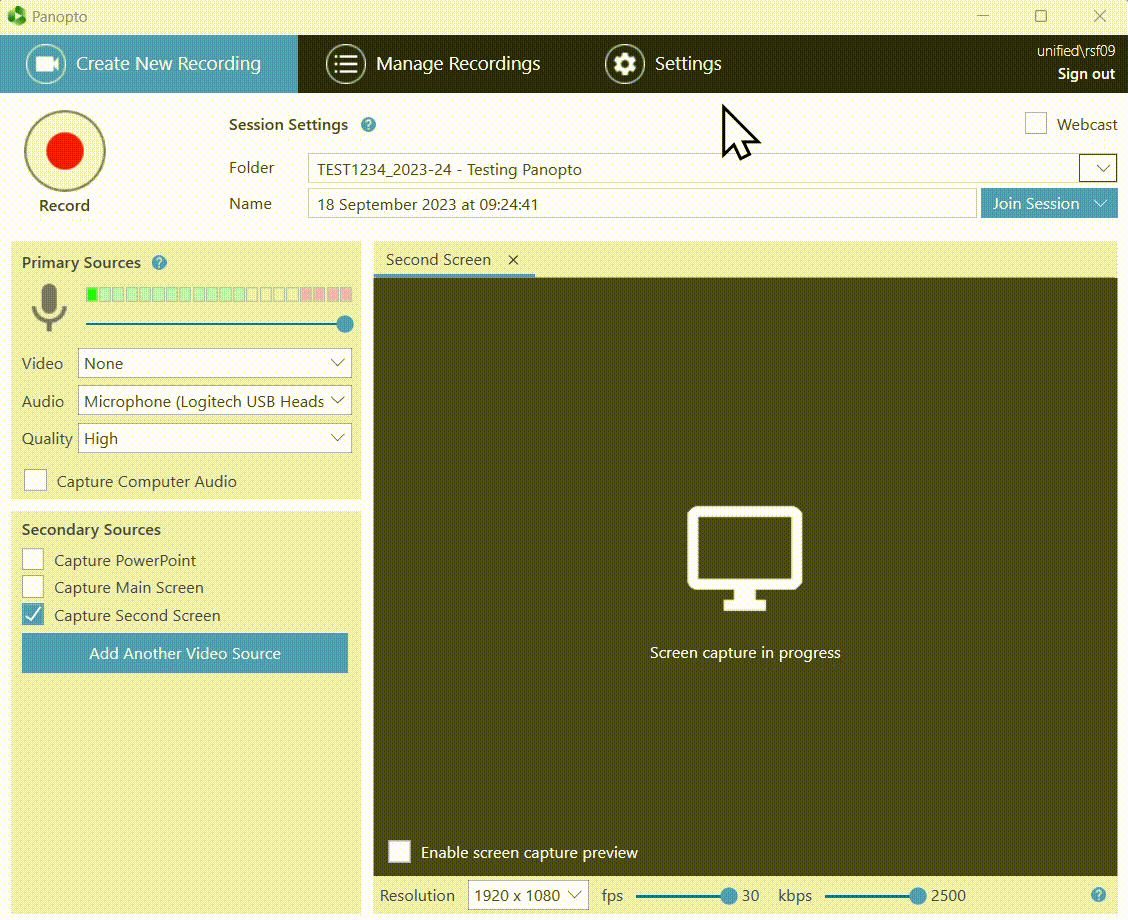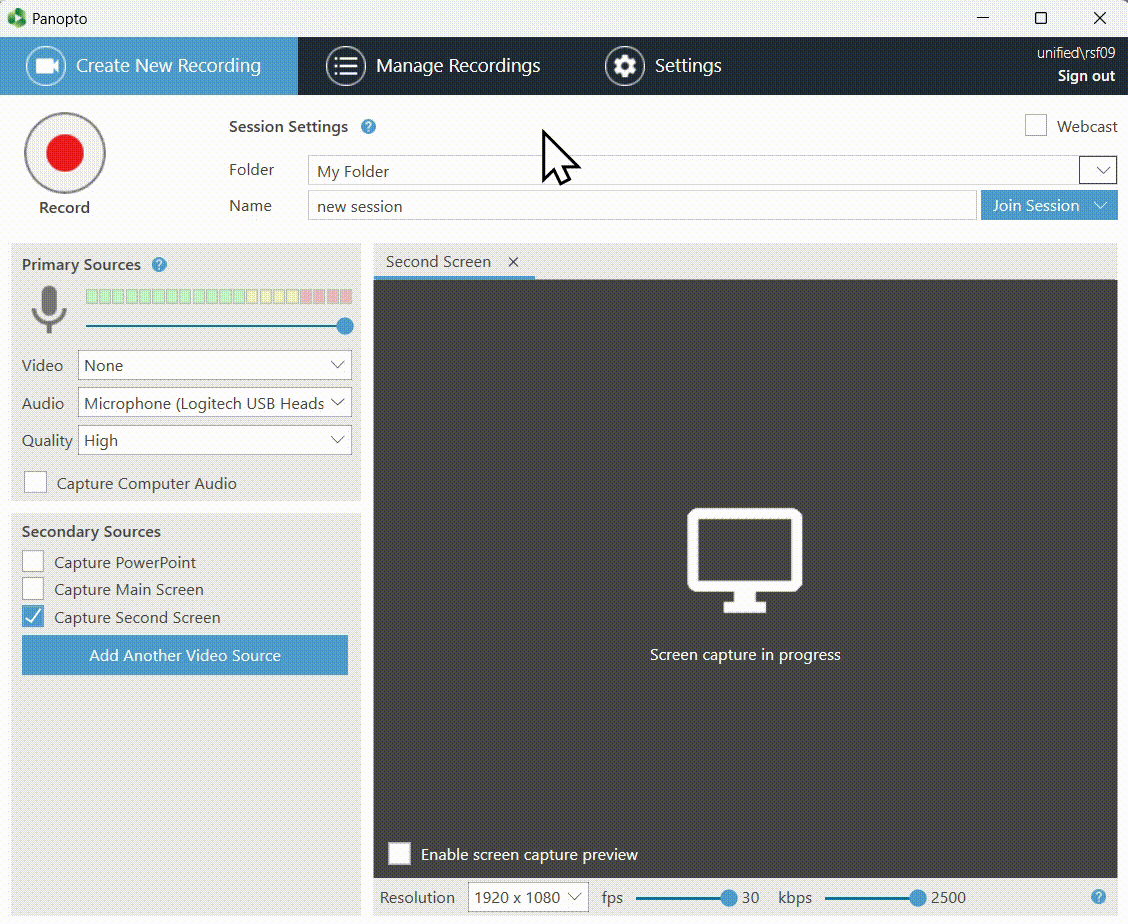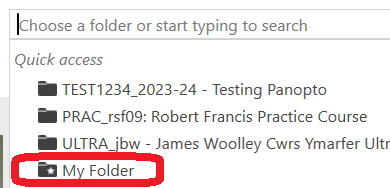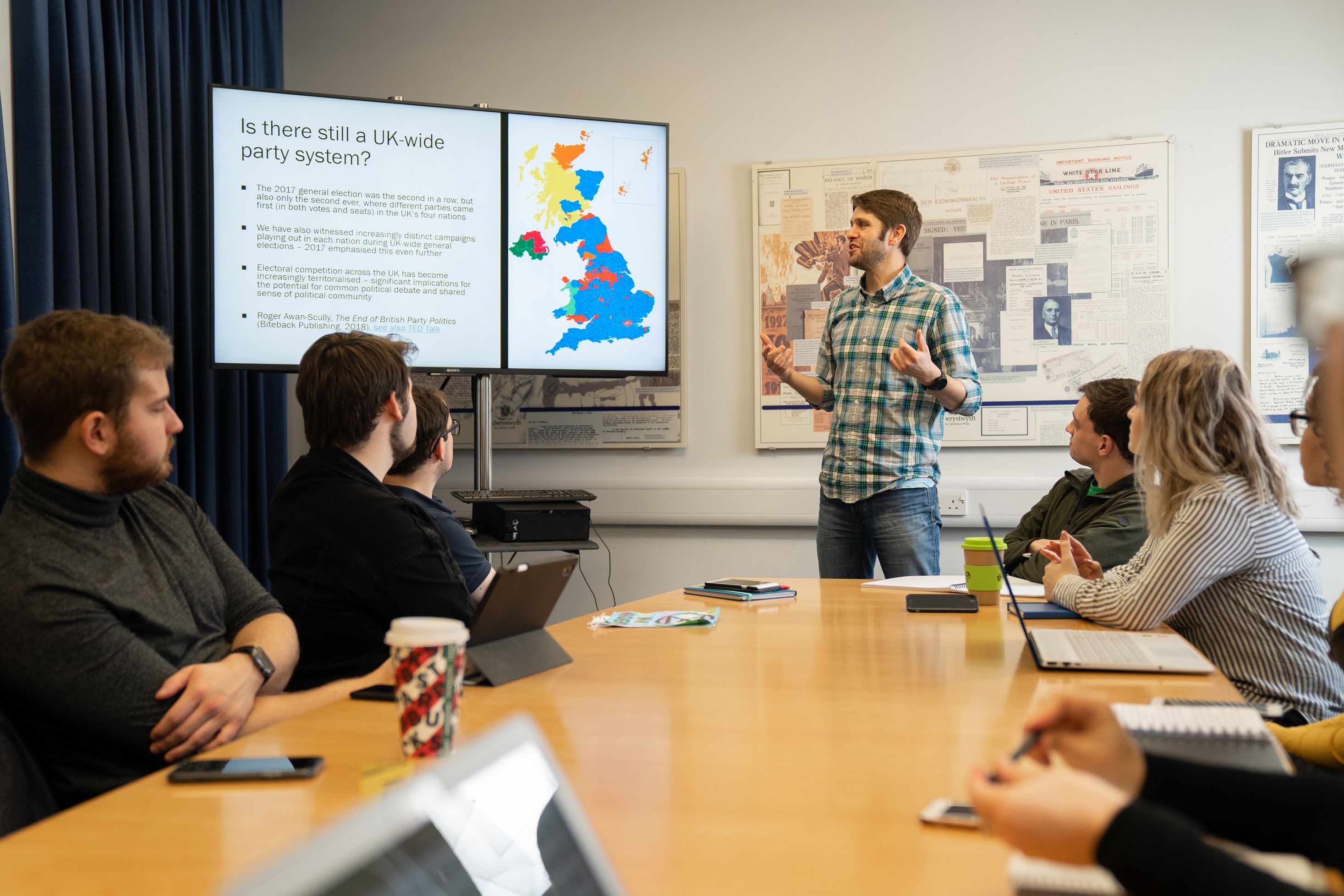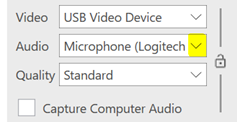As teaching starts, you may find this information about Panopto useful. These are the answers to our most frequently asked questions about Panopto over the last few weeks.
Linking to All Panopto Recordings
You can create a link to the Panopto folder in your Blackboard course. This means that students will be able to see the recordings for the course all in one place.
Finding your Panopto folder
Panopto folders for all this year’s modules are in the 2024-25 folder.
To find the Panopto folder you want to record into:
- Click the dropdown button on the right-hand side of the Folder box.
- Click the dropdown arrow to the left of the academic year folder to expand it.
- Select the Panopto folder you want to record into.
You can also search for the Panopto folder you want to record into:
- In the Folder box start typing the module code or name of the Panopto folder you want to Record into
- Select the folder you want to record into.
What to do if you can’t see your Panopto folder
In a small number of courses, the Panopto folder wasn’t created over the summer. If you can’t find your Panopto folder using the steps above, you can create a folder from Blackboard:
- Login to Blackboard and find your course
- Click on Books and Tools > View course and institution tools
- Click on Holl Fideo Panopto / All Panopto Videos
You should then be able to find the Panopto folder to make a recording.



